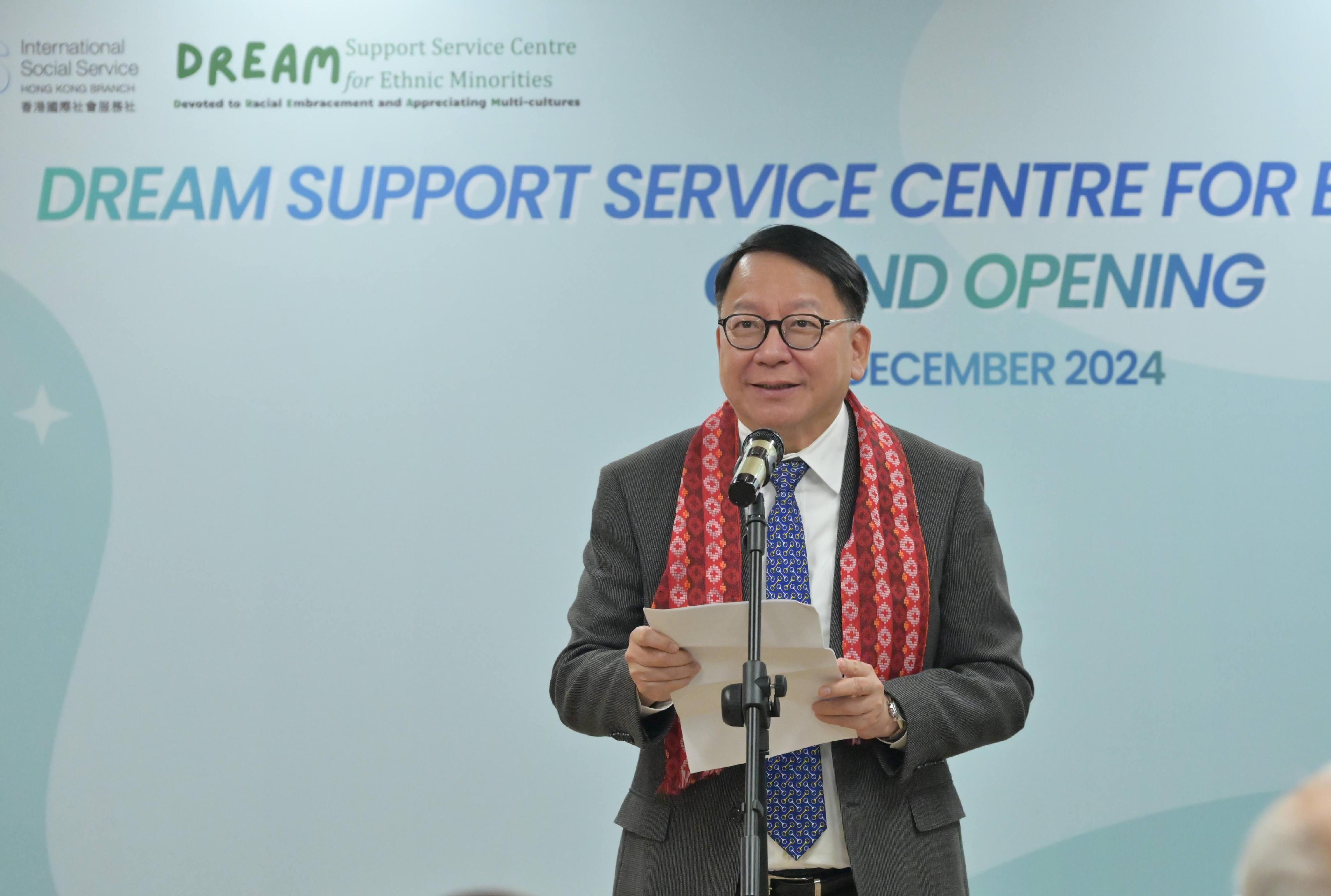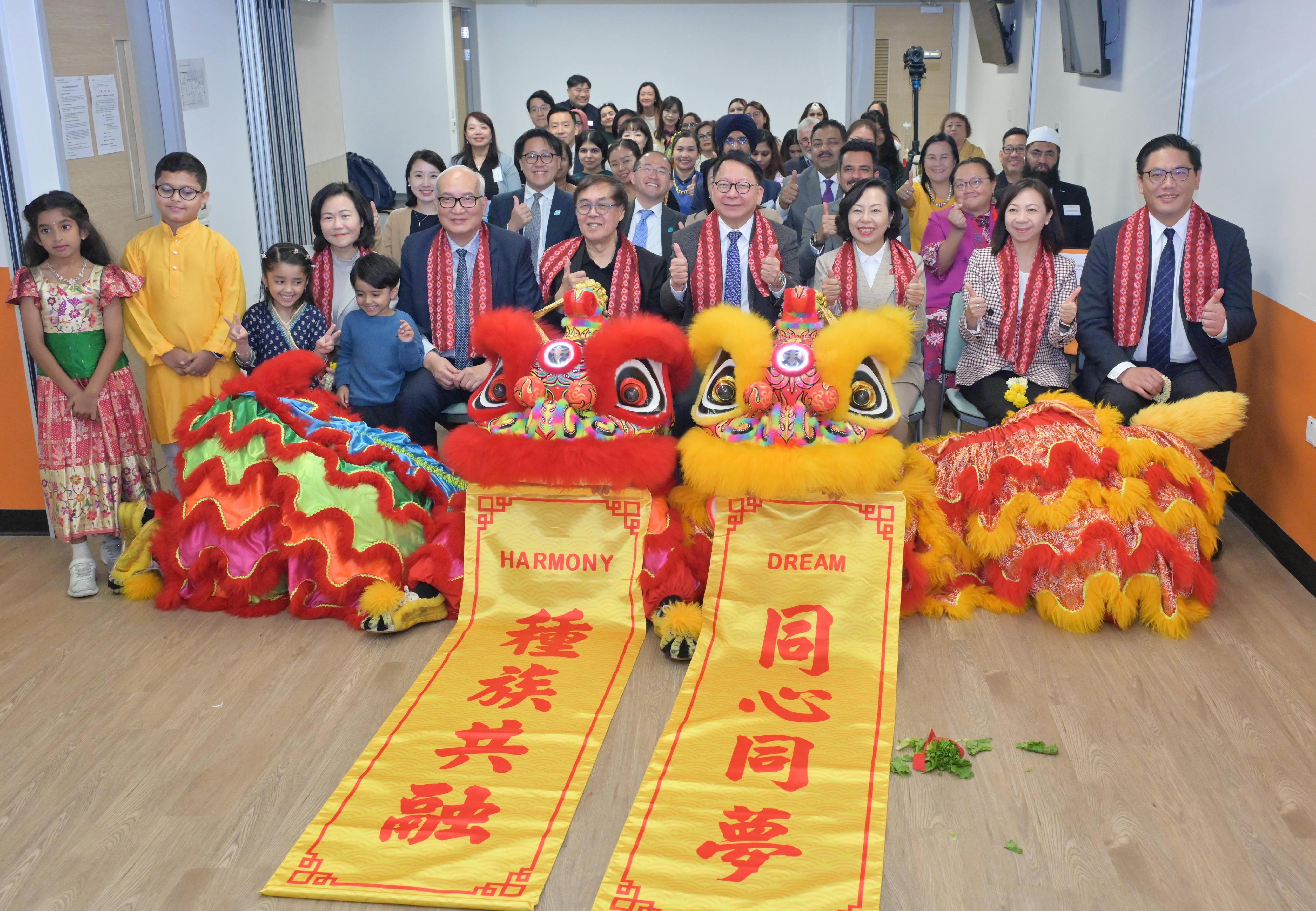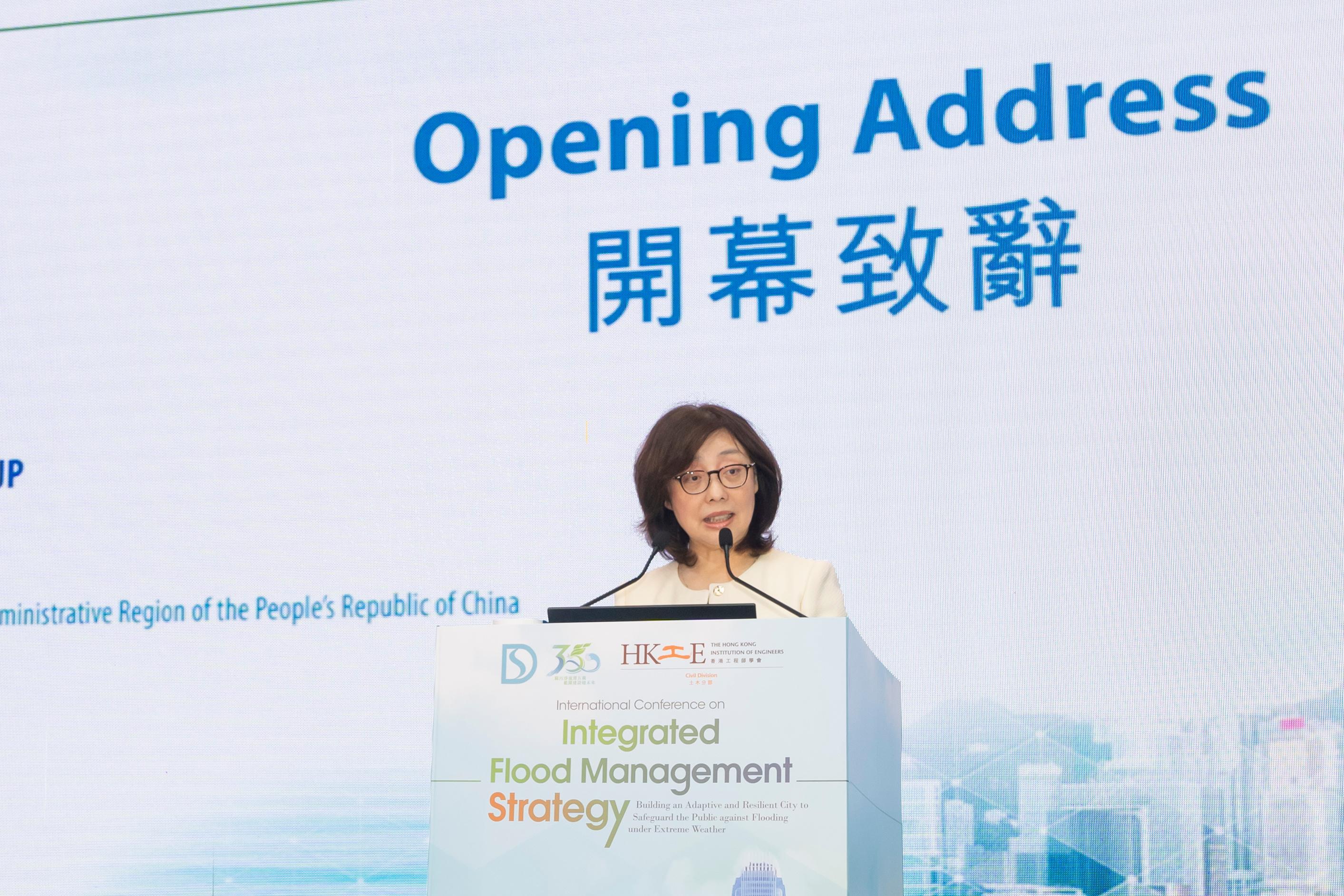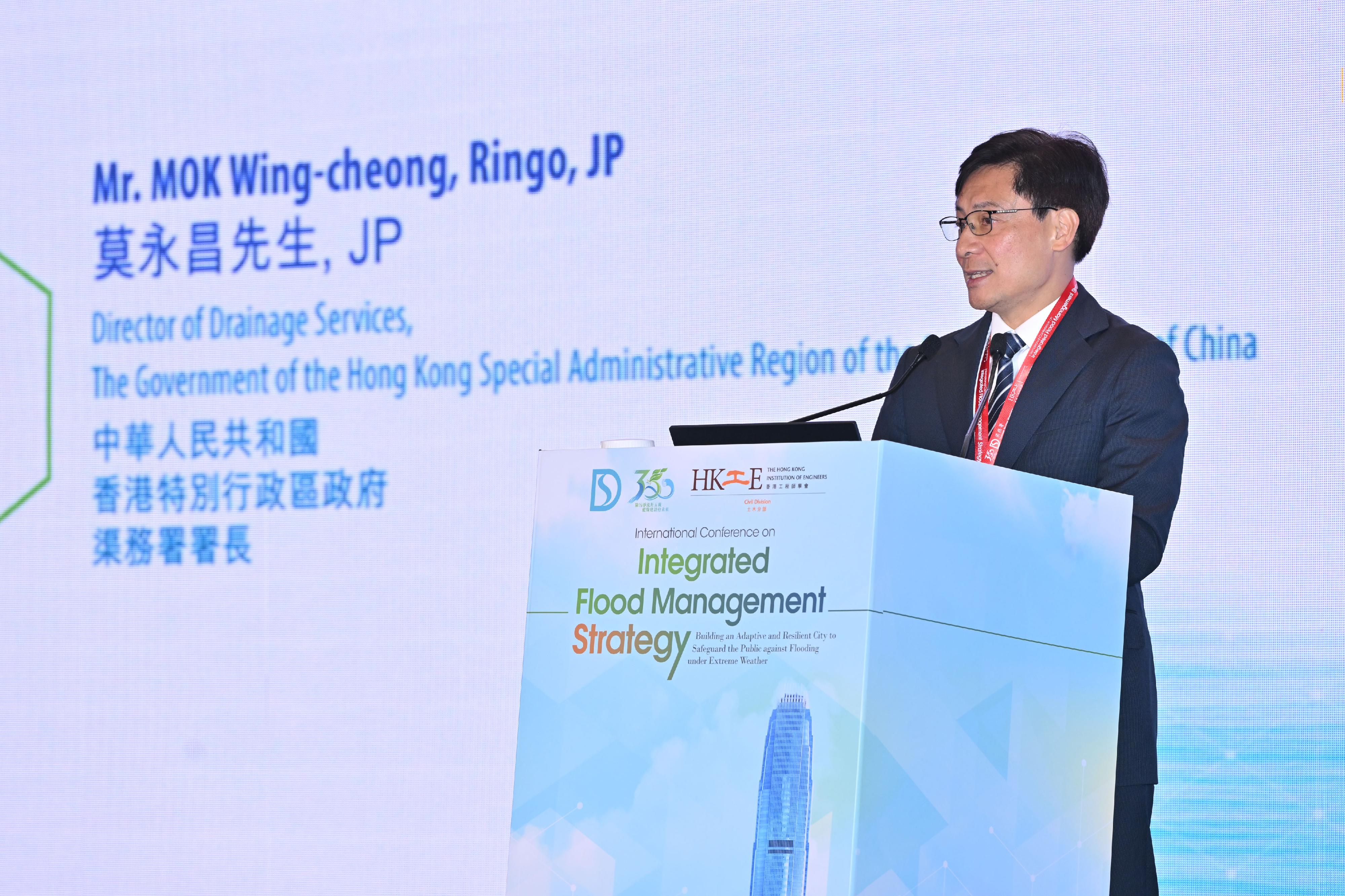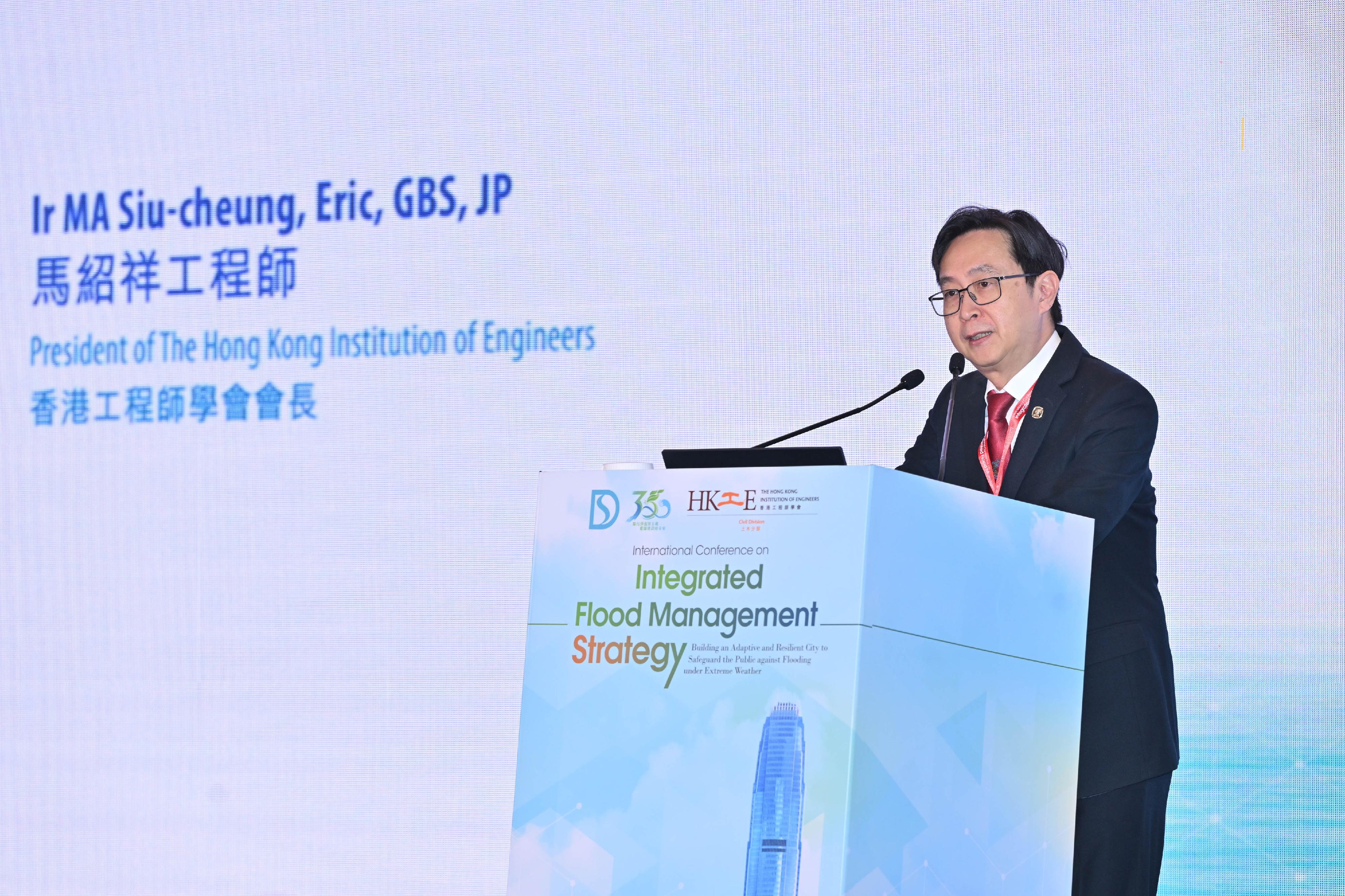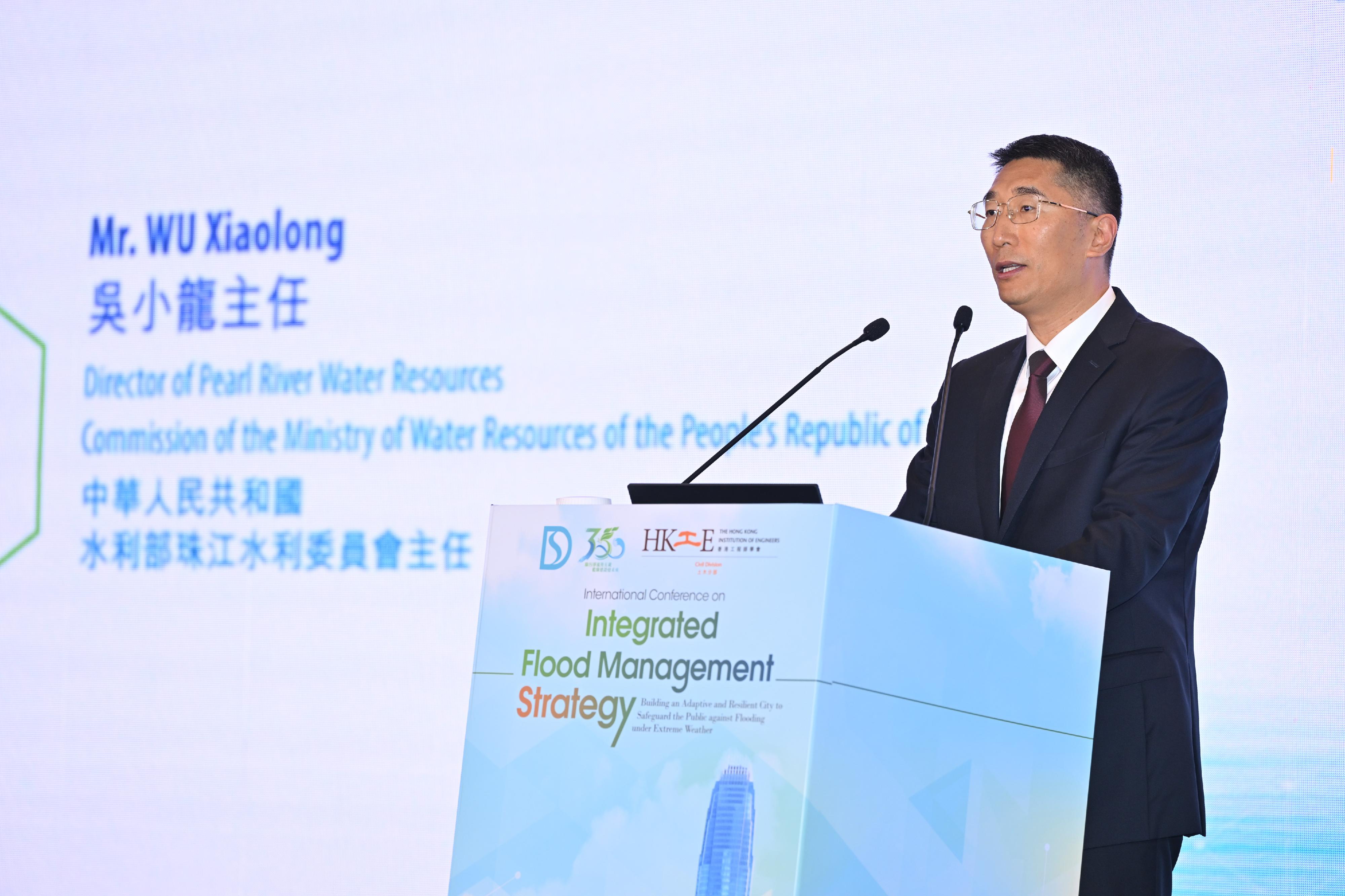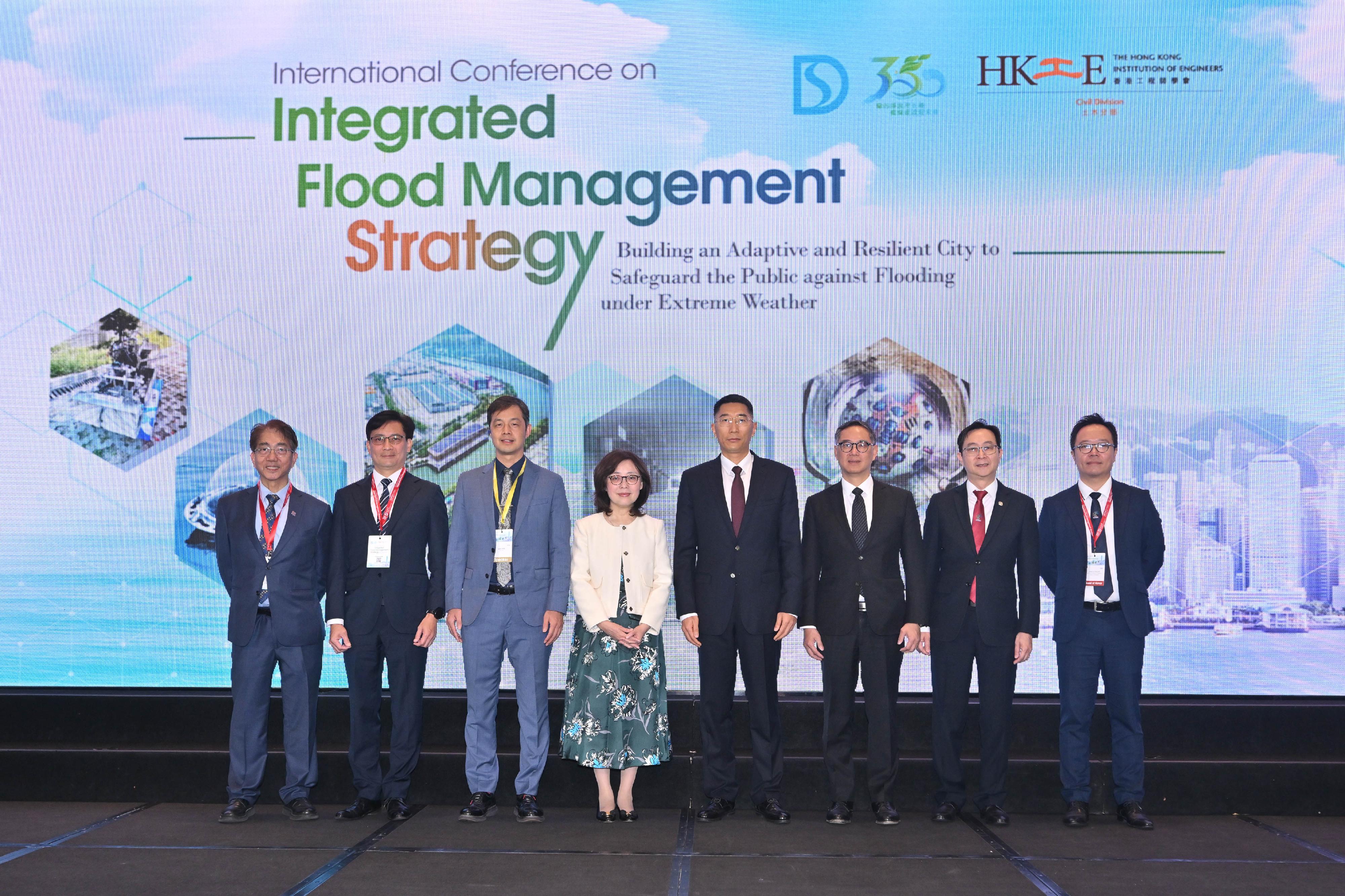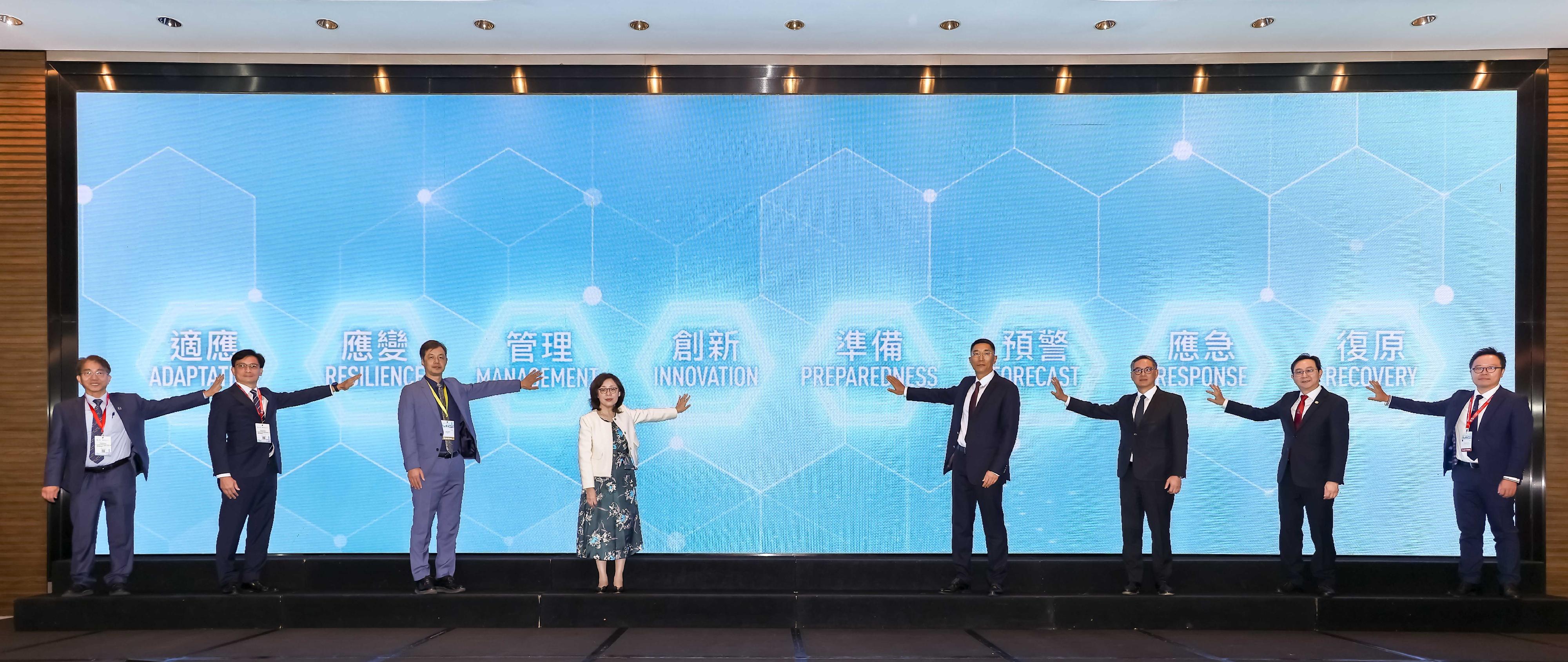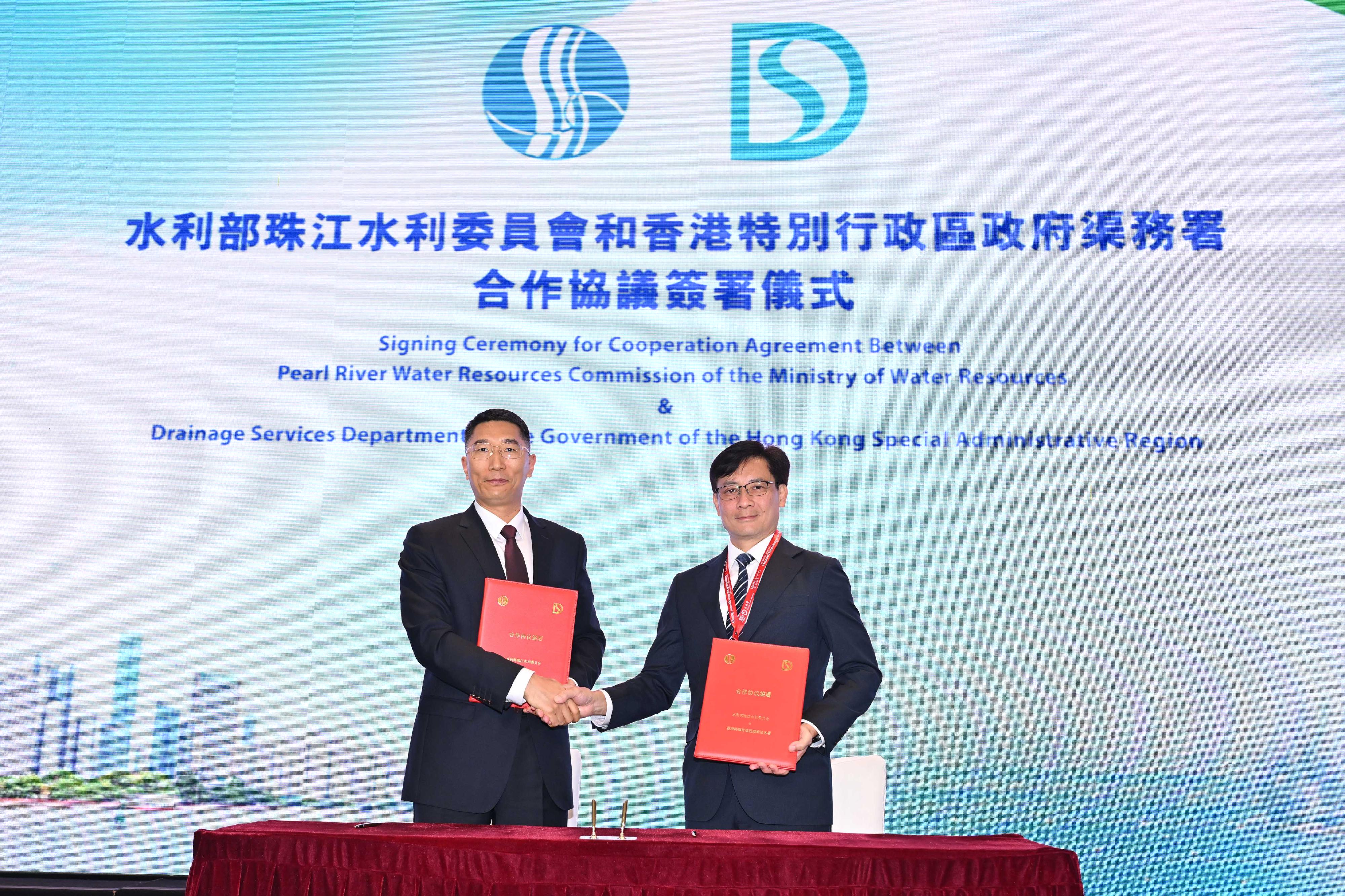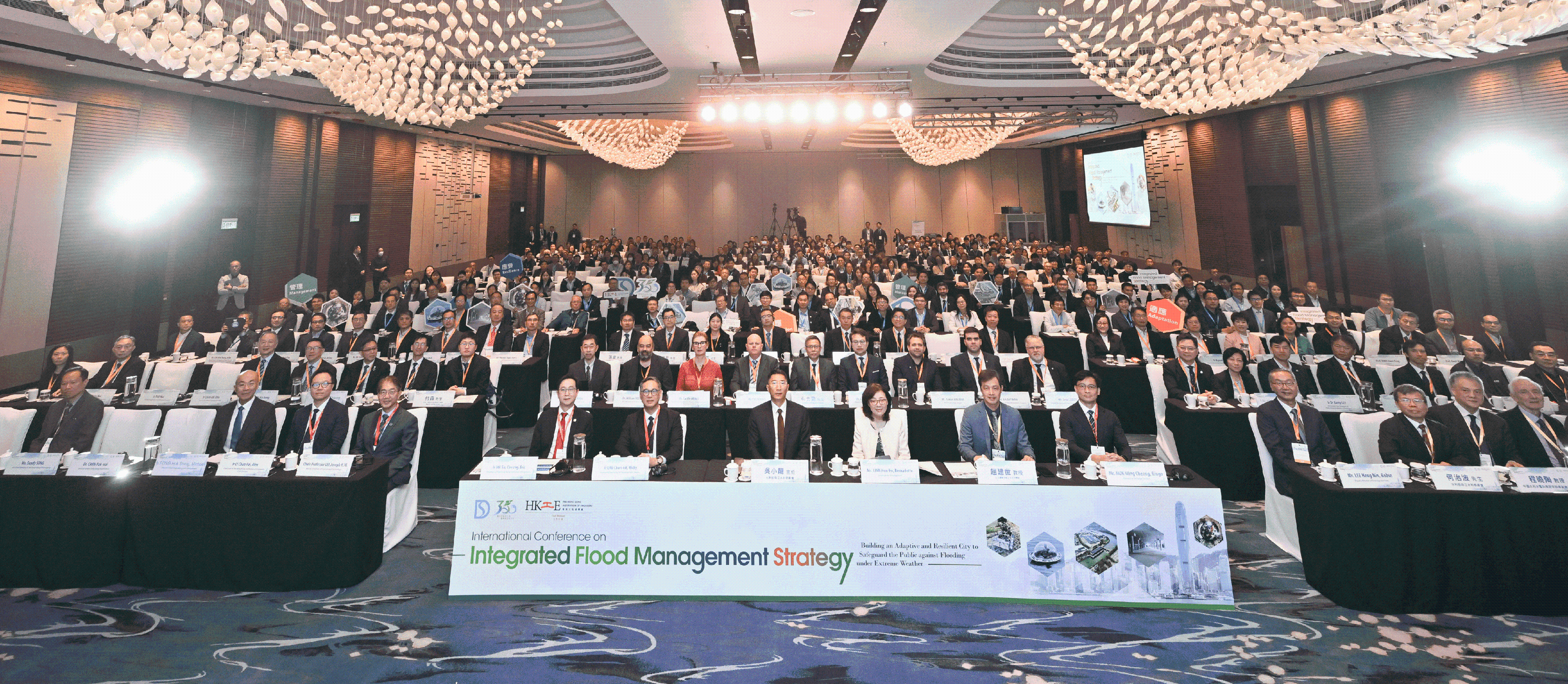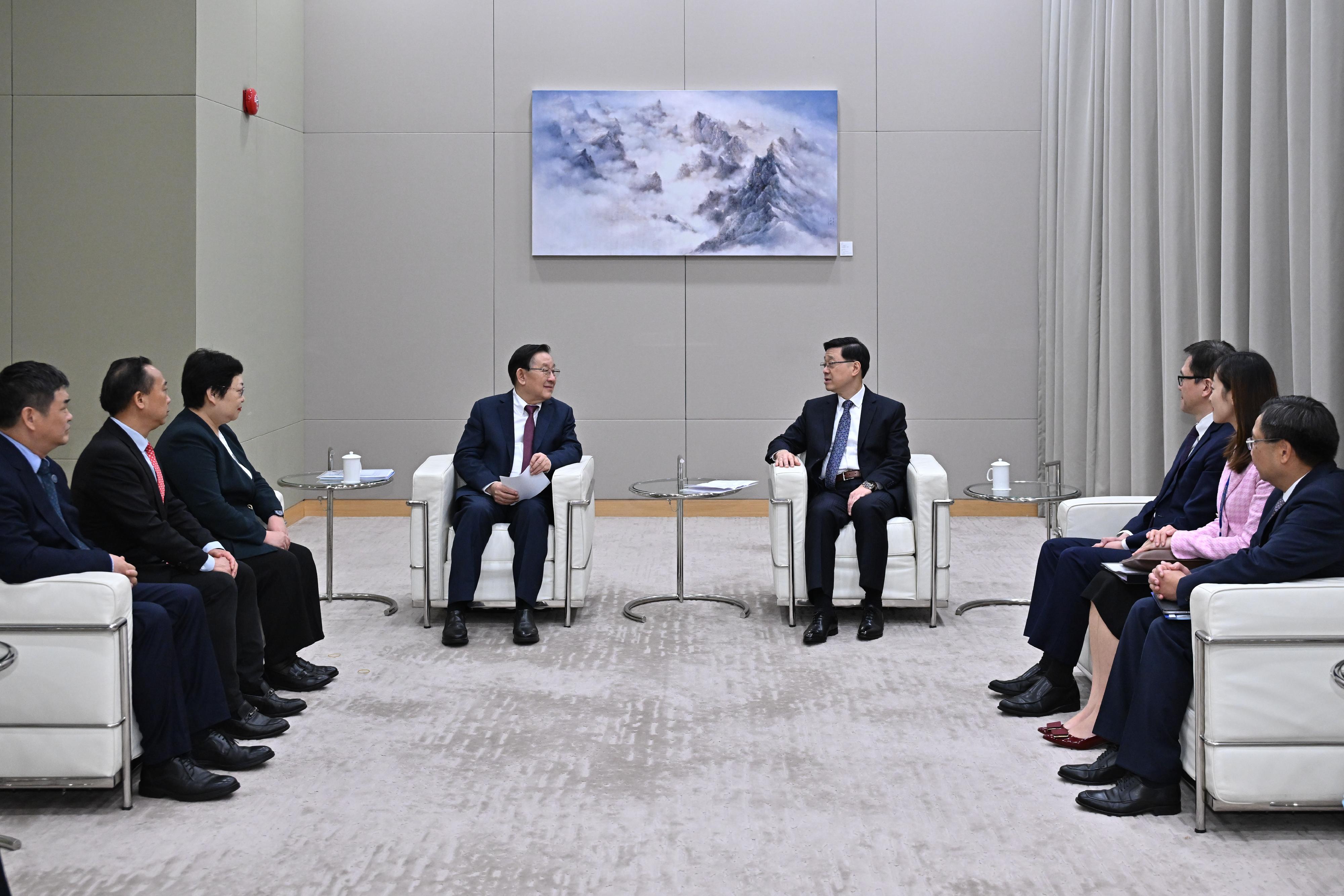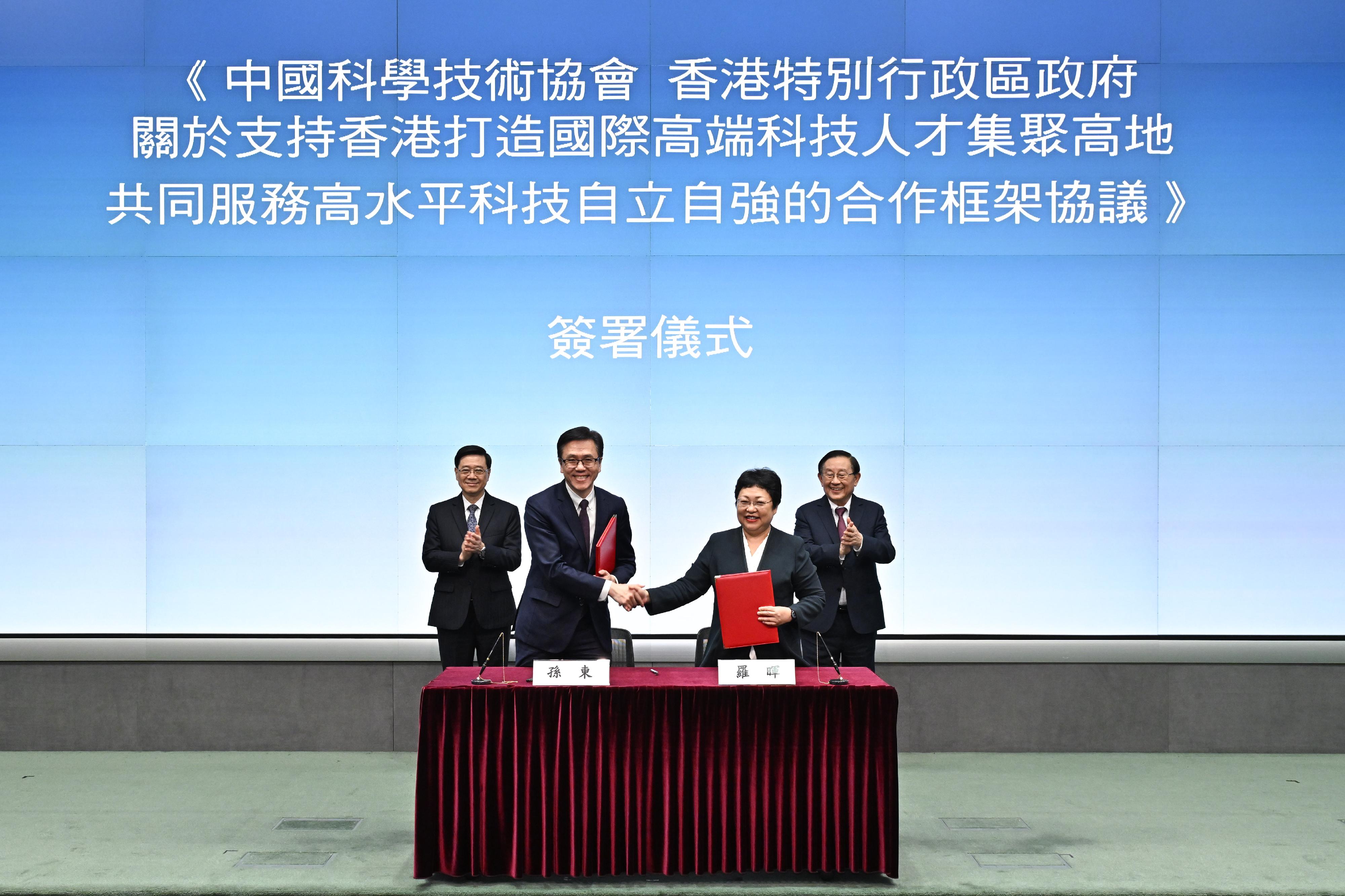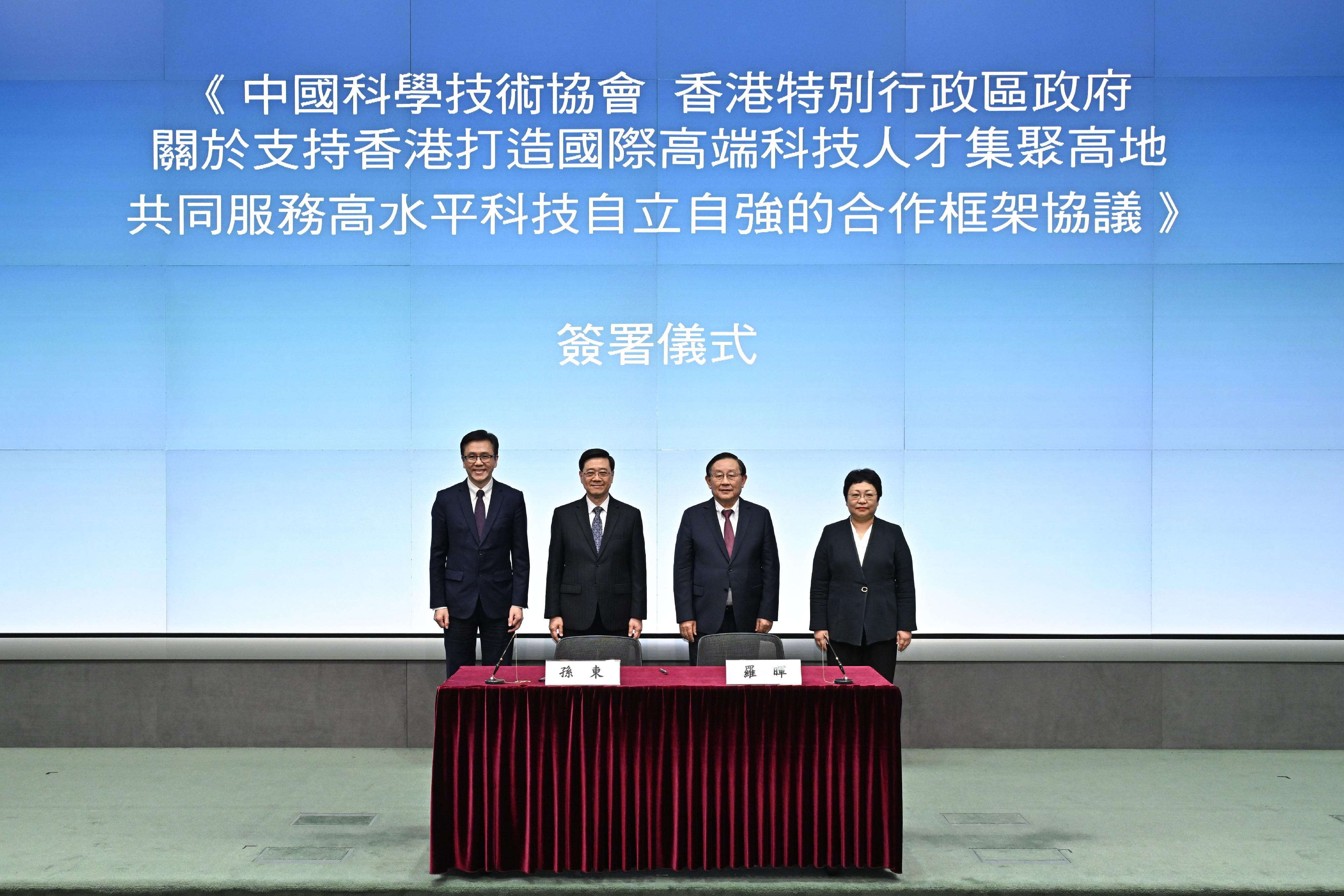​The International Conference on Integrated Flood Management Strategy, organised by the Drainage Services Department (DSD) and the Civil Division of the Hong Kong Institution of Engineers (HKIE), was held today (December 3) to foster co-operation and experience sharing in flood control, as well as to promote the development of global comprehensive flood control management strategies.
With the theme "Building an adaptive and resilient city to safeguard the public against flooding under extreme weather", the conference brought together over 400 leaders of flood control agencies, policymakers, hydraulic experts and academia representatives from Hungary, the Netherlands, the United Kingdom, Japan, the Mainland, Macao and Hong Kong to discuss flood management strategies and adaptation plans in the face of climate change challenges, with a view to building a smart and flood resilient city.
Speaking at the opening ceremony, the Secretary for Development, Ms Bernadette Linn, said that Hong Kong has been adopting a three-pronged approach focusing on storm water interception, flood storage and drainage improvement to tackle flooding over the years. In light of the escalating flood risks brought about by climate change, the Government must take decisive actions and strive to upgrade drainage facilities to enhance adaptability of the city, as well as implement contingency and management measures to strengthen capabilities in early warning, emergency preparedness, response and recovery to enhance overall flood control capabilities.
The Director of Drainage Services, Mr Ringo Mok, said that being resilient means more than investing in drainage infrastructure and flood defences. It also requires the engagement of local communities, private sectors, and the public at large. By fostering a culture of resilience through early warning systems and education, communities will be empowered to become capable of preparing for, responding to and recovering from flooding events. This holistic approach is essential for building a sustainable future.
The President of the HKIE, Mr Eric Ma, noted that Hong Kong also experienced typhoons, extreme rainstorms and storm surge damages last year, demonstrating the urgent need to strengthen flood prevention technologies and formulate effective strategies. Integrated flood management encompasses innovative engineering solutions, robust policy frameworks and active community engagement to develop comprehensive strategies to address current and future challenges.
At the conference, the DSD and the Pearl River Water Resources Commission of the Ministry of Water Resources signed a co-operation agreement to strengthen exchanges and co-operation between Hong Kong and the Mainland in areas including coping with climate change as well as innovation and technology. The Director of the Pearl River Water Resources Commission of the Ministry of Water Resources, Mr Wu Xiaolong, said in his keynote speech that in recent years, the Commission has actively implemented General Secretary Xi Jinping's water regulating approach of "Prioritising water conservation, Balancing spatial distribution, Taking systematic approaches, Promoting government-market synergy" and thoroughly implemented the concept of "Two Adherences and Three Shifts" in disaster prevention, mitigation and relief, vigorously promoted the flood and drought disaster prevention system in the Pearl River catchment to enhance flood and drought disaster prevention capabilities, and implemented scientific and precise dispatch and command, to ensure flood control safety in the Pearl River catchment and the Guangdong-Hong Kong-Macao Greater Bay Area.
In addition to keynote speeches and symposiums, there were booth exhibitions at the conference venue to introduce the latest flood prevention management strategies and technological development directions.
